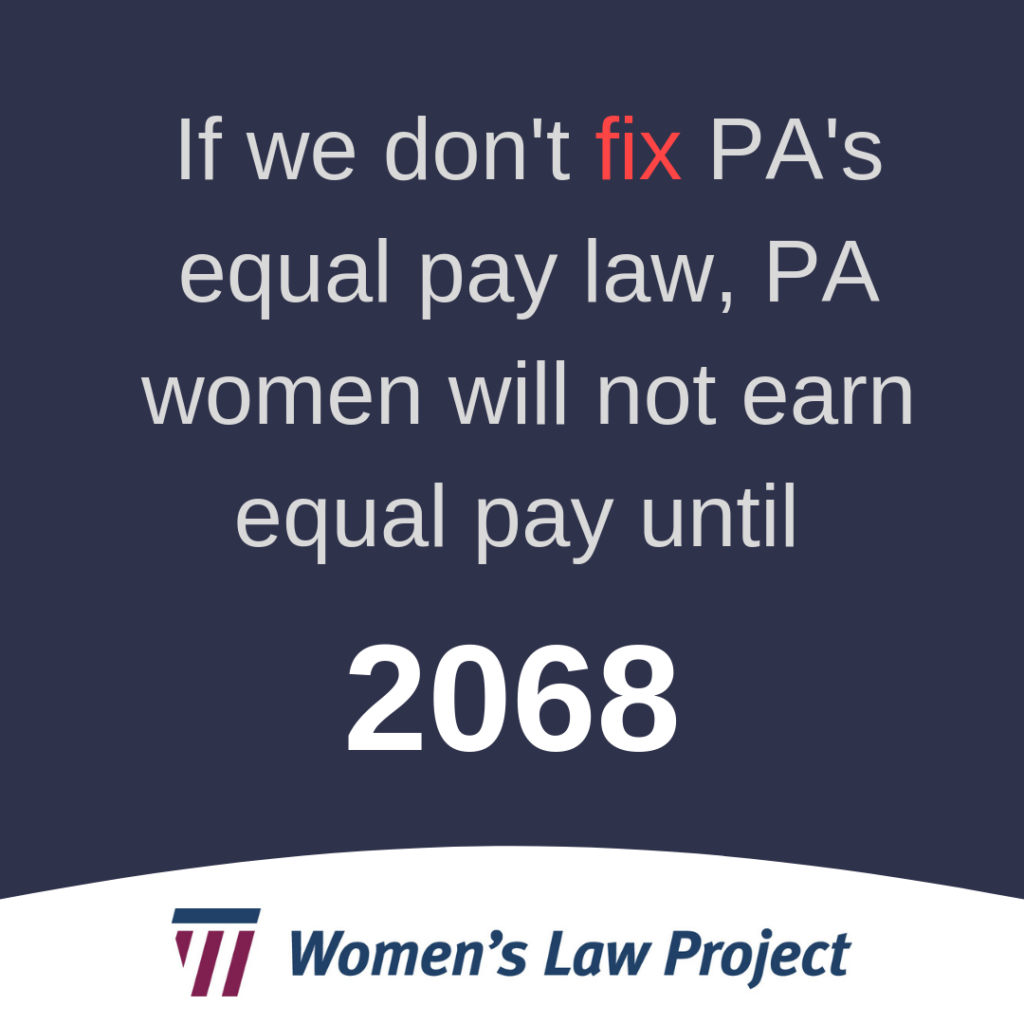 We’re at the Capitol in Harrisburg today calling on the state legislature to pass bills that would fix Pennsylvania’s broken equal pay law.
We’re at the Capitol in Harrisburg today calling on the state legislature to pass bills that would fix Pennsylvania’s broken equal pay law.
While gender and race wage gaps persist across the country, Pennsylvania women are worse off than the national average. Without simple corrective policies that close gaps in current equal pay law, American women, on average, will not achieve equal pay until 2058.
Without corrective policy, Pennsylvania women won’t earn equal pay until the year 2068.
Wage gaps are worse for women of color than white women.
In Pennsylvania, women on average typically make only 78 percent of the median annual wages made by men working full time, year round. African American women and Latinas typically make only 68 percent and 57 percent, respectively, of the wages white, non-Hispanic men typically make for full-time, year-round work.
The law hasn’t been updated in 52 years.
Pennsylvania adopted the Equal Pay Act in 1959.
Perhaps that’s why our equal pay law allows employers to rely on sex-based factors to set pay, but does not explain the current legislature’s reluctance to fix it. The law has not been updated since 1967, when it was amended so that it would protect fewer people.
Legislation must expand the population protected by the law, clarify and limit the reasons employers can use to justify any pay disparity between male and female employees performing similar work, prohibit wage secrecy, and improve remedies.
We don’t want to wait until 2068 to earn equal pay.
We urge you to contact your state Representative and ask him or her if they support fixing the law.
Go here to view and download our fact sheet on equal pay in Pennsylvania.
The Women’s Law Project is the only public interest law center in Pennsylvania devoted to advancing the rights of women and girls.
Sign up for WLP’s Action Alerts here. Stay up to date on issues and policy by subscribing to our blog, following us on twitter and liking us on Facebook.
We are a non-profit organization. Please consider supporting equal rights for women and girls by making a one-time donation or scheduling a monthly contribution.

